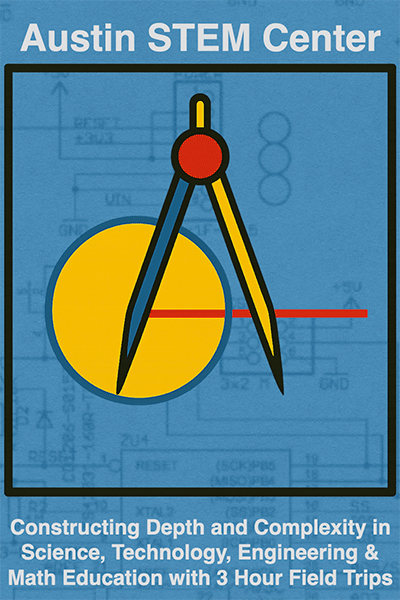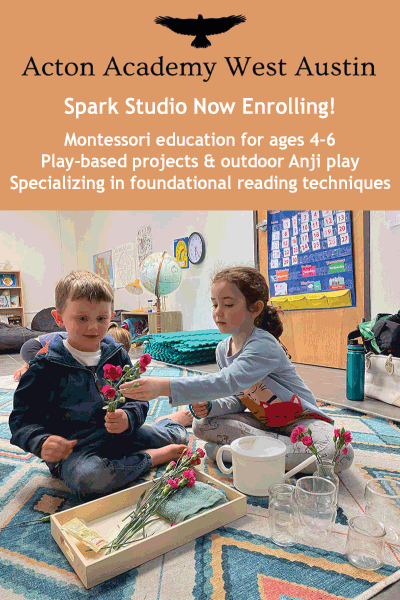Does your bright child have dyslexia? Warning signs that this thinking style is not being maximized at school
/Guest contributor Deanne Repich is Co-Founder and Head of School at Great Minds Learning Community, a three-day micro-school tailored to the unique needs of gifted and twice-exceptional kids, including bright kids with dyslexia, ADHD/hypermobile, sensory processing challenges, vision challenges, dysgraphia, dyscalculia, chemical sensitivity and allergies, Asperger’s/High Functioning Autism, anxiety, or social difficulties. The micro-school features personalized, differentiated learning; a sensory-friendly environment; key supports for your gifted or 2e child’s unique gifts and challenges; and student-driven, project-based learning in an environment that nurtures the whole child intellectually, emotionally, and socially. An educator for almost two decades with experience in gifted and 2e kids, she is a Positive Discipline in the Classroom certified educator, a member of SENG (Supporting the Emotional Needs of the Gifted), and a mom to two twice-exceptional children. You can learn more at greatmindslc.com or contact Deanne directly at deanne@greatmindslc.com.
Your bright child has been diagnosed with dyslexia. Maybe it’s a new diagnosis, or maybe you’ve been dealing with your child’s school’s well-meaning but incomplete accommodations for dyslexia for years and are frustrated.
Dyslexia is a gift and a challenge that affects 1 in 5 people in the U.S. Yes, it’s a challenge. However, it's vitally important to realize that “dyslexia” is merely a label to describe a unique way of processing information that, in addition to its challenges, gives other incredibly important advantages.
Although reading and spelling are areas of difficulty for people with dyslexia, scientific evidence suggests that dyslexics have multiple areas of strength from their thinking style, such as excellent spatial reasoning, narrative reasoning and seeing the big picture, reasoning well in dynamic settings, a strong ability to learn from experience because of how they remember facts as experiences or stories, out-of-the box solutions to problems, empathy, and critical thinking.
Warning Signs
Your child’s school is not maximizing the immense power of his dyslexic thinking style if he is:
- Losing recess or being excluded from activities because of needing more time to complete homework involving reading
- Being punished (e.g. having to pick up trash) during recess because of needing more time to complete homework involving reading
- Missing favorite subjects consistently to be pulled out for specialized reading support
- Being pigeonholed as either being gifted or having a disability instead of having both needs met
- Not given the daily opportunity to display learning mastery that reflects his true intellectual potential through strengths-based alternatives to reading, such as through audio, video, or hands-on projects
- Not given frequent targeted, individualized instruction in an Orton-Gillingham-based system to improve reading and spelling skills
- Being teased by other kids about his reading level and the administration minimizing your concerns about it
- Being “tolerated” or “accommodated” for the learning difference instead of the immense gifts of his thinking style being truly celebrated
- Given support for reading and spelling only, not the many other challenges that typically go along with dyslexia, such as directionality, telling time, organization, social challenges, and so on
- Called “lazy,” “stubborn,” “uncooperative,” or other negative characteristics, when in fact the learning difference is the main reason behind the “problems”
Looking at famous successful dyslexic role models, such as billionaire Virgin Airlines founder Richard Branson, physicist Albert Einstein, actress Whoopi Goldberg, writer Agatha Christie, and director Steven Spielberg (and many, many, others), not to mention the 40-60% of self-made millionaires who were diagnosed as dyslexic, shows us that this thinking style is important in our world and can lead to a path of success for your child.
Positive Signs
What does a school that helps your child see and nurture the many gifts of her dyslexic thinking style look like? Like this:
- No penalties, punishments, or exclusions because of dyslexia. Being included in recess and other fun activities even when she needs more time to complete projects involving reading
- Teachers addressing and nurturing both her intellectual gifts and the lagging skills due to dyslexia effectively
- Mastery shown in a format that matches his strengths (e.g. oral or project-based demonstration of mastery) while encouraging growth in areas of lagging skills
- Regular targeted, individualized instruction in an Orton-Gillingham-based system to improve reading and spelling skills
- School culture that celebrates (not just tolerates) her unique gifts and strengths coming from her thinking style
- Guided support for non-reading ways that dyslexia presents challenges (organization, reading maps, social difficulties, difficulty keeping to a schedule, etc.)
- Passion-based learning support for lagging skills. This means getting to know what makes your child tick and using passions as a doorway to developing lagging skills, through “just-right” challenges
- Support for uneven learning in different subjects and skills, understanding that kids, especially very bright learners, have uneven development across subjects and skills
- Learning with peers with similar thinking styles. You’d be amazed how quickly your child’s self-esteem soars when she is in a room with several other bright, dyslexic kids with whom she can relate
- Teachers that understand learning differences and know that your child is not lazy, stubborn, or other negative characteristics, that respect your child and provide nurturing and guided support
If your child’s school experience looks more like the Warning Signs I described, it’s time to work with your child’s school toward substantial positive change. If that doesn’t work, it might be time to consider switching to a school that will help him realize his full potential and find success through the powerful gifts of his unique thinking style.
After all, most of us gravitate toward our strengths and find success and fulfillment there in life, both professionally and personally, and your child is no different. It is time well-invested to help your child leverage her strengths, and her dyslexic thinking style is a huge one.
Deanne Repich















